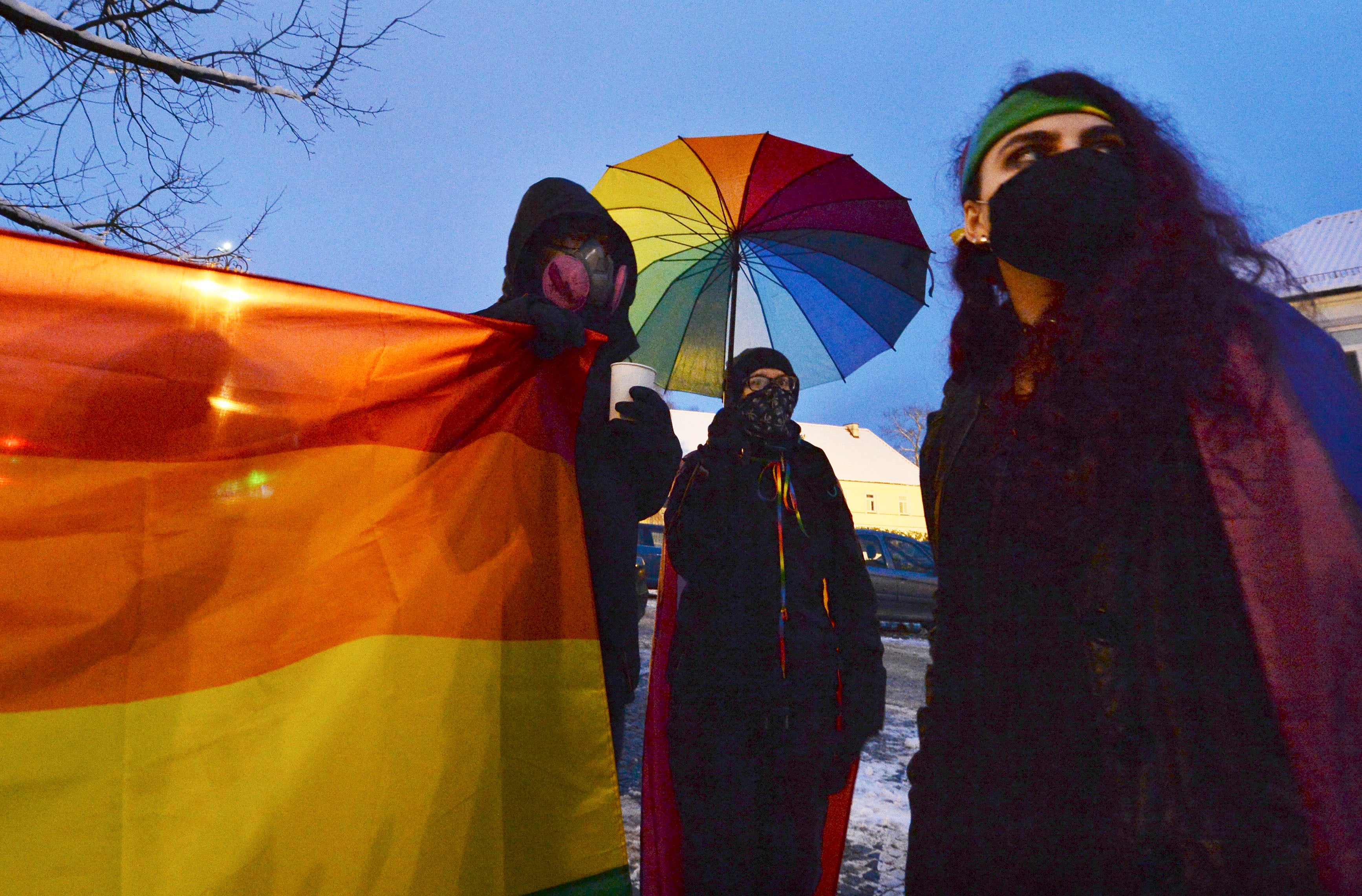Polish town declares it is no longer an ‘LGBT+ free zone’
Councillors in Nowa Dęba vote to undo 2019 ruling amid international outcry

Your support helps us to tell the story
From reproductive rights to climate change to Big Tech, The Independent is on the ground when the story is developing. Whether it's investigating the financials of Elon Musk's pro-Trump PAC or producing our latest documentary, 'The A Word', which shines a light on the American women fighting for reproductive rights, we know how important it is to parse out the facts from the messaging.
At such a critical moment in US history, we need reporters on the ground. Your donation allows us to keep sending journalists to speak to both sides of the story.
The Independent is trusted by Americans across the entire political spectrum. And unlike many other quality news outlets, we choose not to lock Americans out of our reporting and analysis with paywalls. We believe quality journalism should be available to everyone, paid for by those who can afford it.
Your support makes all the difference.A town in Poland has become the first in the country to reverse a decision to become an “LGBT+ free zone”, amid international outcry at the nearly 100 municipalities in the country that have issued such resolutions.
Councillors in Nowa Dęba – a town of 11,000 in southeast Poland – voted to undo a 2019 ruling that declared the region “free from LGBT+ ideology”.
The resolution, rooted in a religious conservatve interpretation of “traditional” family life, spelt out the town’s determination to “defend against aggressive, deceptive and harmful LGBT ideology” and so-called “homo-propaganda”.
In last week’s vote, 10 of the 15 councillors voted in favour of withdrawing the resolution, one abstained, and the remaining four attended the meeting but did not vote.
Chairman Damian Diektiarenko, who submitted the motion revoking the declaration, said the council's intentions had been “misunderstood”.
He said: “We cannot allow anyone to tarnish the image of the commune by using this declaration.”
Bart Staszewski, a filmmaker and Polish gay rights activist who has worked to highlight “LGBT+ free zones”, said: “Council members of Nowa Dęba decided to withdraw the LGBT-free zone bill they declared in late 2019. That is great!”
Kuba Gawron, an author and organiser of equality marches in the Polish city of Rzeszów, said he had contacted other local authorities in an effort to overturn similar resolutions.
“When the councilors adopted this resolution, they seemed to think it would only reach their local voters,” he told The Independent. “They did not expect that the topic would become international.
“That's good the councillors repealed the shameful resolution, but unfortunanely they still don't see anything homophobic in it.”
In a statement to The Independent, Polish LGBT+ rights group Stop Bzdurom said: “The resignation of one of the many municipalities does not change the fact that these resolutions are still being introduced [elsewhere in Poland].
“At the present moment, the right-wing government has faced powerful resistance from the lesbian and gay community, and is also facing powerful resistance from women and those fighting for abortion on demand. We fear that the scapegoat of the coming year will be the transgender community.”
In October, the Irish town of Fermoy announced it was ending an arrangement that had twinned it with Nowa Dęba over the bill.
Noel McCarthy, who is a member of the Fermoy Twinning Committee, said: "We must stand up to people like this. You can not do this in 2020 and be seen to be able to get away with it.”
In response, Nowa Dęba’s mayor, Wiesław Ordon, said he had “never experienced discrimination against anyone on the basis of sexual orientation or other characteristics”.
Twinned towns in France and the Netherlands have also cut ties with their Polish counterparts in protest at the zones.
At least 100 municipalities or regions, mostly in conservative southeastern Poland, have passed declarations that vowed to keep out “LGBT+ ideology” or adopted “family charters” that backed heterosexual unions.
The action forms part of an unprecedented assault on LGBT+ rights in Poland that has gained momentum since 2019 with the establishment of anti-gay “zones”, activists say.
In one case, a Polish newspaper distributed stickers with homophobic slogans and a crossed-out Pride flag, while participants at a Pride rally in the city of Białystok were defended by riot police after far-right groups attacked marchers with stones and bottles.
Ursula von der Leyen, president of the European Commission, has strongly condemned the situation in Poland, saying “LGBTQI-free zones are humanity free zones. And they have no place in our union”.
Human Rights Watch (HRW) has called on Polish authorities to “stop trying to silence activists who support LGBT+ rights”, warning an “overly broad” blasphemy law violates freedom of expression and signals the “further deterioration of the rule of law in Poland”.
Under Article 196 of Poland’s criminal code, a person who “offends the religious feelings of others by publicly insulting a religious object or place of worship” faces up to two years in prison.
HRW said a wave of arrests in Poland had followed a campaign of placing rainbow flags on prominent public monuments.
Kyle Knight, senior LGBT+ rights researcher at HRW, said: “Scapegoating and targeting a vulnerable minority is becoming a routine and nasty part of the government’s playbook, with dangerous repercussions for human rights.”
Andrzej Duda, Poland’s president, made the protection of “traditional families” a key campaign theme during his successful re-election last summer.
Poland is one of just a handful of countries in Europe that is yet to legalise same-sex marriage.

Join our commenting forum
Join thought-provoking conversations, follow other Independent readers and see their replies
Comments